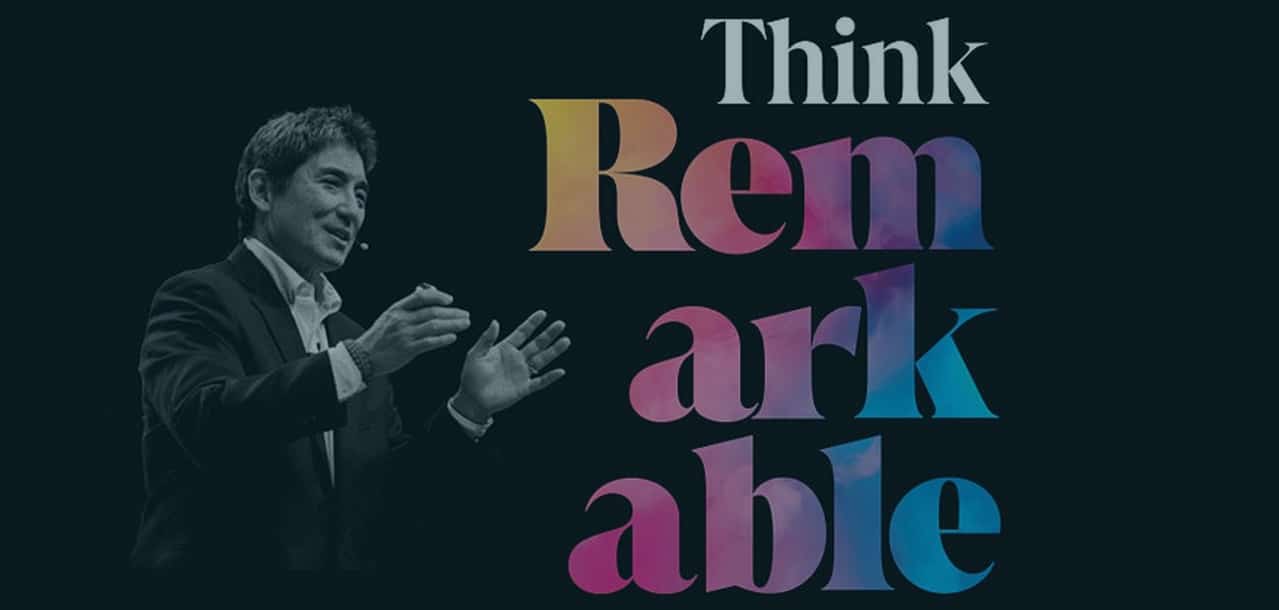Category: How we think

Laser Focus for the Winter Months
“The decrease in daylight hours reduces serotonin levels and disrupts our circadian rhythm. Colder temperatures can also decrease motivation, and the added pressure to finish projects before the Christmas and New Year break can create a work environment that is not always conducive to optimal performance. To navigate this period successfully, it’s essential to maintain focus, seek balance, and establish clear goals.

Lessons from Guy Kawasaki’s Insights on Personal Growth, Leadership, and Resilience
” Kawasaki provides unique insights and lessons from his experiences and interviews with remarkable figures like Jane Goodall and Steve Wozniak. This post will explore some of the core takeaways from a recent podcast interview I did with Guy on the 1% podcast, touching on themes such as growth, perseverance, work-life balance, and leadership.”

Impressions Create Expressions
“In the context of organisational culture and individual performance, the saying “impressions create expressions” significantly shapes subsequent behaviours. Research in organisational behaviour suggests that these impressions—shaped by leadership—have a profound impact on overall performance.”

What Can a Dying Uruguayan Teach You About Life? Hint: it’s More than You Think
“Pepe Mujica is dying. Pepe Mujica has lived. The 89 year-old former “philosopher president” of Uruguay is a pivotal figure in his country’s history, having helped lead the transformation of his small South American nation into one of the world’s healthiest and most socially liberal democracies. He also used to rob banks as a Robin Hood-esque leftist urban guerrilla, tunnelled his way out of two prisons, endured 13 years of captivity, including two in solitary confinement in a hole in the ground, and survived six gunshot wounds during a 1970 confrontation with the police.”

The Power of Likeability
“Understanding the essence of likeability can significantly alter our interactions both personally and professionally. Psychology unveils subconscious triggers that influence our perception of others. By grasping these mechanisms, we can refine our approachability and establish stronger bonds.”

This is Water
“We live immersed in the water of our daily routines, oblivious to its very existence until someone points it out. The “water” in our lives could be anything –– the ability to have a meaningful conversation, the beauty of a sunrise, the simple act of breathing, all these cosmically miraculous aspects of the human experience that we steadfastly fail to recognise.”

The Hero’s Journey
“By harnessing the power of the hero’s journey, companies can craft marketing campaigns that are more than just advertisements. They become engaging narratives that customers can connect with on a personal level. This emotional connection fosters brand loyalty and encourages customers to see your product or service as an essential part of their transformative journeys.”

Why You Need a Creative Outlet
“Productivity culture is at a fever pitch. We must all have a primary and side-hustle…We must work ourselves into the ground until we’re so burned out that we’re not useful to anyone, least of all ourselves. Or, we could treat our minds and bodies with a little respect and find some balance.”

How to Approach a Career Pivot
“According to the US Department of Labor, the average person will change careers 5-7 times during their working life. Approximately 30% of the total workforce will change jobs every 12 months”

Building A Resilient Workforce : The Power of A Growth Mindset
“Developing a workforce characterised by a strong growth mindset, resilience, and determination can be achieved through strategic use of reward systems and effective management. One key area which can contribute to employee’s intrinsic motivation is praise.”

The Dangers of Playing it Safe
“To stop playing it safe, companies need to reassess their relationship with risk. Of course risk can bring failure. (As we’ve established, playing it safe can too.) But those failures don’t need to be failures. Through a shift in mindset, they can instead be viewed as opportunities for learning.”

Cultivating Quality Relationships through Leader-Member Exchange
“Leader Member Exchange (LMX) is a theory which focuses on the quality of the relationship between superior (leader) and subordinate (employee). The theory supports an ingroup, midgroup and outgroup. Employees within the ingroup may experience higher levels of LMX which is linked to increased confidence and positive relations; whilst outgroup interactions are characterised by low trust and minimal support.”